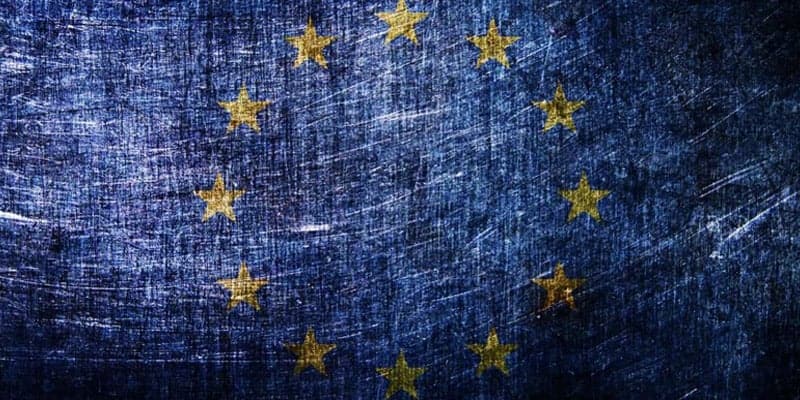Privacy Canada is community-supported. We may earn a commission when make a purchase through one of our links. Learn more.
Consequences of EU Social Media Regulation

With the Digital Services Act currently under review in the EU, Brussels is striving to set new standards and drive a fresh economy – one where big data and digital interaction make up the heart of the society.
With this, undoubtedly, comes more regulation and more stringent controls on data protection, which in our current online landscape means one thing:
Social media is going to be at the center, and innovation is now or never.
Given social media’s unprecedented rise as the most dominant force in shaping public opinion, and alongside its ambition reach all corners of the globe, it’s hardly surprising that government regulators, who seem to have a big problem in the court of public opinion themselves, have placed it in their crosshairs. More emphasis than ever is now going to be put on demanding that platforms prioritize online safety and privacy of their users.
On top of this, the new, recently green-lighted European commission puts increased focus on tightened regulations in an effort to end illegal, illicit, and irresponsible content.
What Do EU Citizens Think About Online Privacy?
None of this is particularly shocking, given the statistics surrounding social media. One recent report showed that over 55% of EU member state citizens aged 16 to 75 used social media networks in 2018. Far from being a one-off incident, when the parameters are refined to ages 16 to 24, the percentage of users increases to 88% – demonstrating that this trend is only going to continue upwards. This is the reason that the EU has firmly stated its desire to set clear social media legislation under the “Digital Services Act” (DSA).
This has generated a predictable and defiant reaction from the biggest companies in the industry. Businesses such as Facebook, Twitter, and Youtube all offered swift but ultimately fairly powerless condemnations. With this new legislation forcing social networks to adjust their rules, new doors could begin to open for businesses that have set DSA friendly design at the heart of their service.
By focusing on rules that encourage social learning and responsible users, the EU could begin to create opportunities for innovators and alter the way social media operates for the better. After all, the recent introduction of GDPR for small businesses has demonstrated exactly that.
While the commission has remained tight-lipped about the exact details of the DSA, it is probable that companies will soon be subjected to enforced content removal for anything deemed irresponsible or illicit – instead of the traditional approach to only remove terrorist content. It has been revealed by some officials in the commission that the platforms would still remain exempt from prosecution over their user’s content under the “Safe Harbour” protocol.
However, the UK government’s “Online Harms” paper is looking to be much more proactive and aggressive in its approach to social media companies. Likewise, the UK’s proposed Digital Services Tax would further affect large companies, this time taxing their revenue.
As stated, these intrusions of government into the unrestricted high-seas of social media has hardly been met with enthusiasm. Information released by the EU has revealed how Facebook attempted to defend itself against any attempt to control its user-posted content. With the companies argument bringing up positions of freedom and speech and innovation. The company also protested against enforced consent gathering on the platform, believing that it degraded their user experience. A somewhat ironic position considering that the European Commission’s 2016 e-Privacy report showed 92% of Europeans desired the reverse.
This irony is compounded by the fact that a desire for online privacy is also on the rise among internet users. An obvious example of that would be the continued growth of the VPN industry, an industry solely built around keeping users’ activity as private as possible. Granted that they can choose a reputable and quality VPN provider in a largely unregulated industry. It is strange then, that the social media giants seem to ignore this.
Social Media Networks That Value Privacy?
But not every social media company holds the same views as the titans of their industry. In fact, many innovative companies have predicted the change in the regulatory landscape and have already taken steps to integrate these demands into their business model. For them, self-regulation, consent, and responsible content are front and center priorities.
An example of this would be Yubo, a French social media company whose service is designed to help teens find friends. Yubo places its users at the heart of ensuring its community rules are met. Although it is built around live streaming, content creation, and sharing, it encourages social responsibility between users and doesn’t shy from its necessity.
This drive for self-regulation and personal responsibility lines up with Yubo’s desire to prevent directly punishing transgressing youths. The app is specifically designed to allow them the opportunity to understand exactly what they’ve done and why it breaks Yubo’s rules. One such design element is their unique algorithm – which can detect transgressive behavior and cut into messaging or live streaming on the fly. An approach which both sets boundaries and demonstrates to their 20 million users that they alone are responsible for their behavior.
Other companies such as LemonSwan and FreshBooks enforce strong controls to prevent the spread of fake accounts and bad agents. An approach that considerably improves the quality of its user base and content. This is achieved through a series of vetting that ensures interactions are happening between real people.
Final Words
Given its wide range of cultures, it is unsurprising that the EU is home to the exact kind of innovators that would unexpectedly benefit from more widespread regulation.
While the old guard of Facebook, Twitter, and Youtube may be resistant to threats to their freedom of operation, the new EU regulations may, through their ushering of new innovation and focus on user protection, bring about an improved social media environment – one where the user’s rights are put first. Given how much innovation in the last decade played nursery for, it can be expected that the next is going to be no different.





